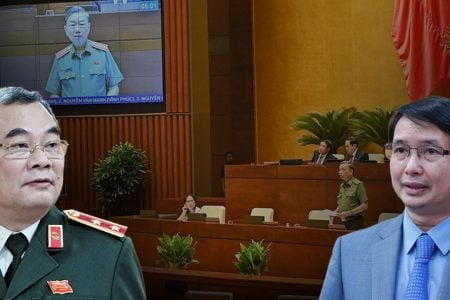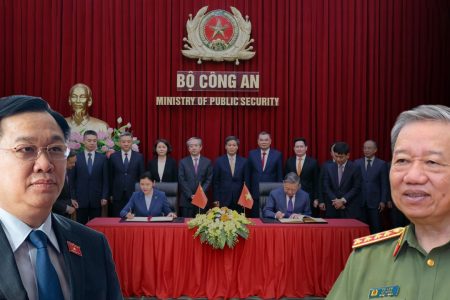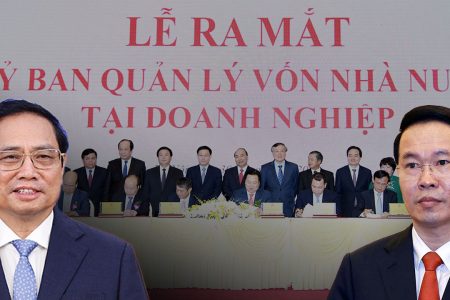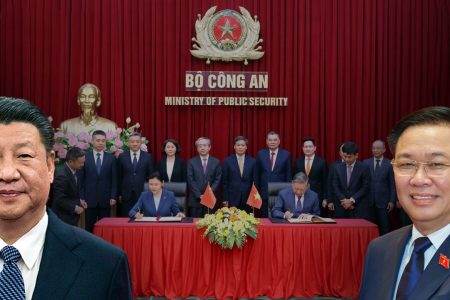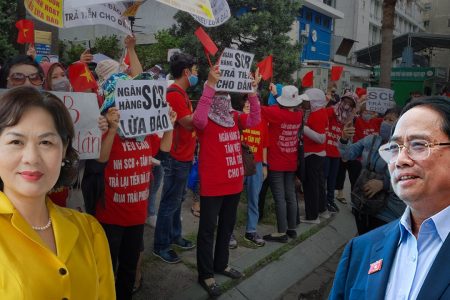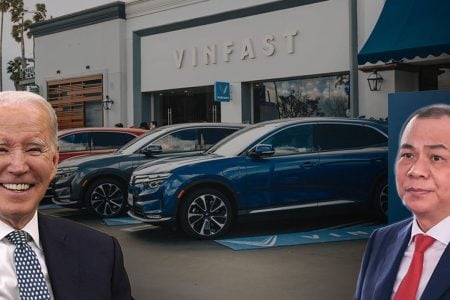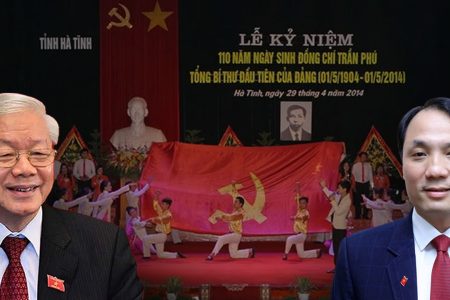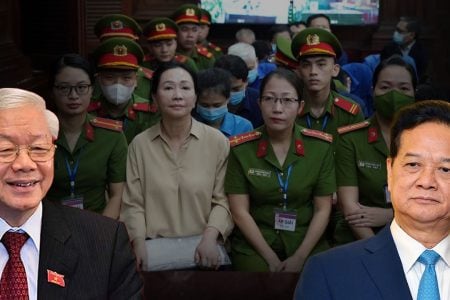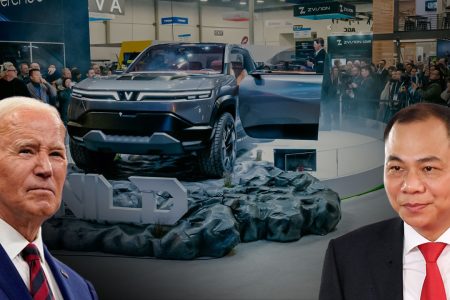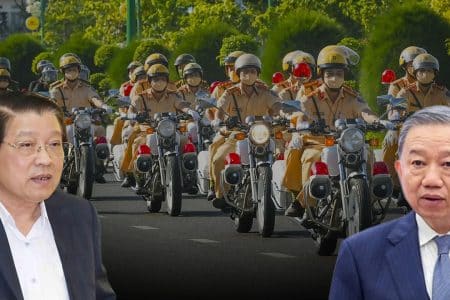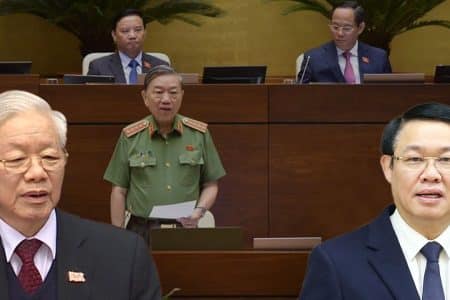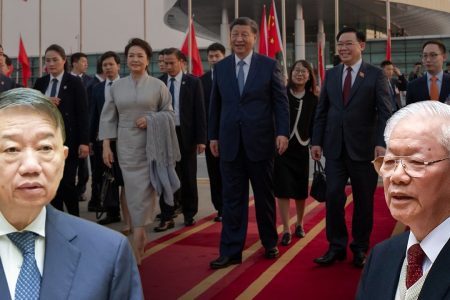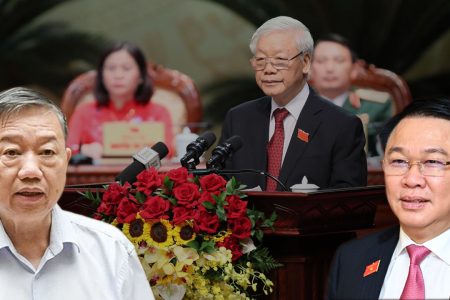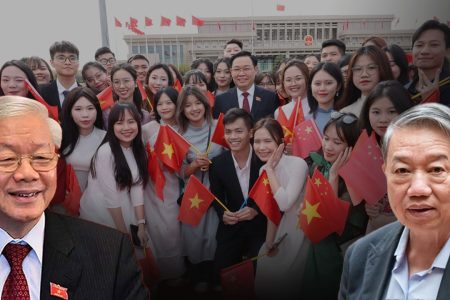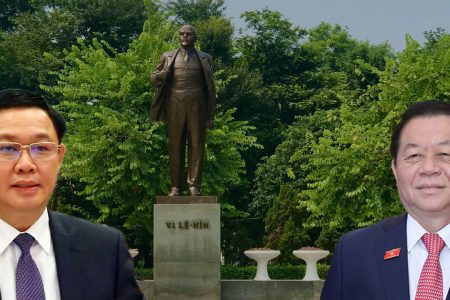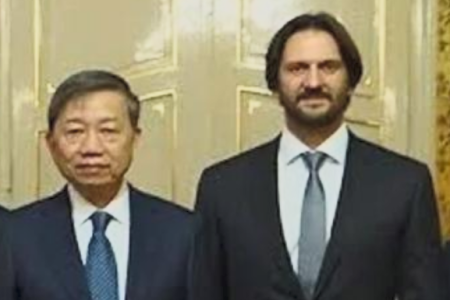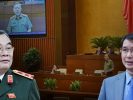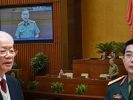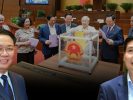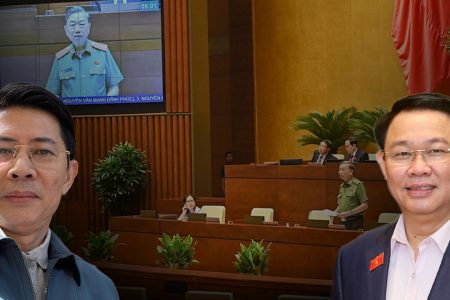
The 15th Plenum of the Central Committee of the Communist Party of Vietnam (CPV) is expected to open this weekend.
This is the last meeting of the Central Committee before the 13th Party National Congress which opens on January 25.
At the Plenum, the Central Committee will decide “special cases” and key new positions.
At this time, there are speculations about whether the General Secretary cum State President Nguyen Phu Trong will “surprise” with his stay to lead the Party.
Nguyen Khac Giang, a Ph.D. student at Victoria University in Wellington, New Zealand, is an observer of Vietnam’s political developments.
Answering BBC News in Vietnamese, Mr. Khac Giang shared his personal assessment of the Party’s personnel arrangement capabilities for the 13th Congress.
Nguyen Khac Giang: If Mr. Trong continues to hold the position of General Secretary, it is unusual, because, since the end of the war, the Party’s charter states that individuals cannot hold this position for more than 2 terms.
The last time the Congress had such an “abnormal” phenomenon was in the 7th Congress (1996) when the Central Committee was unable to agree on a leadership position, and it took more than a year to elect Mr. Le Kha Phieu as the general secretary at a plenum. If Mr. Trong continues to hold power, it means that the Politburo in particular and the Central Committee, in general, have not agreed or trusted the next leadership team for the transfer as happened at the 7th National Congress.

Mr. Trong, with his political prestige, easily stabilizes the situation to find a suitable replacement, while avoiding disturbances in the apparatus, while ensuring his legacy not being set aside.
However, the biggest risk of this option is the stability of the regime – although maybe Mr. Trong has goodwill, no one can guarantee that the leaders in the future do not try to abolish the principle of collective leadership, amend the charter, or use “special cases” to take power to entrenchment.
This is the “bad emperor” problem that any autocratic regime has. Breaking the regime is easy, but rebuilding is difficult.
BBC: Looking back at a term that is about to end, you acknowledge that Mr. Trong, besides the burning campaign, has some remarkable measures in the Party building “clean, strong“?
Considering the number of disciplined party members – from the grassroots level to the Politburo members – it can be seen that the Party under the second term of Mr. Trong really made an impression in internal cleansing.
Of course, whether anti-corruption goes hand in hand with the purge of political opponents is an open question that we do not know the correct answer to. On the other hand, Trong’s efforts to “burn the furnace” came from the top down, by concentrating more power on inspection and supervision agencies such as the Central Inspection Commission or the Government Inspectorate. The implications of this concentration of power will be huge if no one “supervises the supervisor.”

This dilemma can be resolved by facilitating bottom-up monitoring – the participation of citizens and civic organizations. But in the past two terms, there have not been many changes for this change: the Law on Association after more than 20 years of discussion has not been brought to the National Assembly, while the press and media environment tends to be tightened.
BBC: In his recent speech, Mr. Trong emphasized in the coming time “Continue to promote building and rectifying the Party, building a socialist rule of law State and a clean, strong and comprehensive political system. Reforming the Party’s leadership and ruling methods. Build the organizational apparatus of a lean political system, operate effectively…” So the personnel plans being discussed have brought the spirit of “innovation” or not or to what extent?

Since we do not have the exact information on how to select candidates, it is difficult to evaluate specifically.
However, based on official information from the Party, the personnel work still performs not much different from the process of the 12th National Congress, mainly based on the election Regulation 244 with the principle of “democratic centralization“: that Politburo members are not allowed to self-nominate or accept nominations, but must comply with the decision of the “party committee.”
This actually increased the party’s right to arrange personnel. In grassroots Party organizations (commune or equivalent) and on a (district or equivalent) basis, there has been extensive testing of the direct election at the Party congresses. However, at the national level next time – this will be unlikely.
BBC: What do you comment at this last-minute around the characters considered candidates for the highest four positions?
In theory, all current Politburo members, who are not subject to any discipline, are considered candidates for the position of General Secretary. However, when looking carefully at each candidate, almost everyone has “imperfections” on the profile as many analysts have pointed out before.
If Mr. Trong wants to stay, this is clearly the point he used to persuade the Politburo and the Central Committee.
However, it should be understood that despite being the most powerful leader of Vietnam since Le Duan, Trong still has to persuade the Central Committee and then the Party Congress to accept his plan.
This is not an easy thing. When the Politburo under Mr. Trong’s administration wanted to discipline then PM Nguyen Tan Dung in 2012, the Central Committee of the Party vetoed it.
It is a small risk for Mr. Trong to continue to hold the position of the general secretary for the third term.
BBC: If the mechanism for direct election of 1,500 deputies to elect the top leader is a “big step forward” in democratization within the Party, that mechanism, assuming it is applied this time, has an impact on the need to create momentum for economic growth and development in a new stage or not?
With the very cautious approach to political reform of the Communist Party, I do not think that the upcoming conference – and the conference in 2026 – will apply the direct voting method as it is being tested at the lower congress. If it is applied, however, it would be a major breakthrough.
Expanding the “vote base” will make it much more difficult to manipulate votes or impose the views of some leaders, creating the basis for establishing a true accountability mechanism for the leadership positions – if you do not do well, do not meet the “election promise” set out, you will not be elected again.
The delegates of the Party Congress actually represent each group of socio-economic interests of each industry, each locality, and in order to draw votes from them, candidates will have to show true management capacity, not just know “what to plants, what animals to grow.”
Many communist theories believe that Vietnam is in need of the second reform – after 35 years of economic reform, political reform is needed to launch a launchpad for economic growth, which shows signs of slowing down over the years. Direct party voting – if done at the provincial and central levels – would be a good start to that second reform process.
Thoibao.de (Translated)




